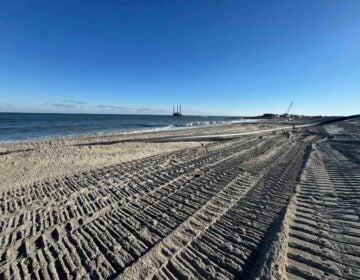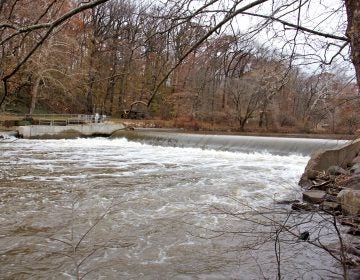University of Delaware researcher studying how warming temperatures in Antarctica could impact our region
Oceanographer Carlos Moffat and his graduate students have just spent 45 days at sea — to better understand ocean warming and melting ice in Antarctica.
Listen 1:37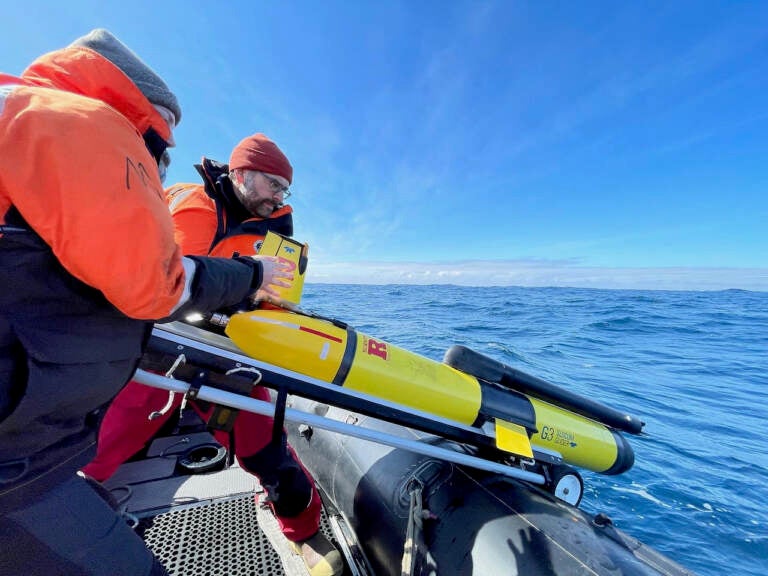
Graduate student Rike Benz (left) and associate professor Carlos Moffat (right) prepare to deploy an ocean glider off the coast of the west Antarctic Peninsula. (Courtesy of Nicole Waite)
Oceanographer Carlos Moffat and his graduate students returned to Delaware this month after spending 45 days at sea to better understand ocean warming and melting ice in the West Antarctic Peninsula — one of the fastest-warming regions in the world.
The University of Delaware team is researching the correlation between ocean temperatures and the speed at which glaciers melt, and how increased melting can change the ocean.
The team found abnormally warm ocean conditions that resembled the marine heat waves observed elsewhere in the world. These often short-lived but severe warming incidents can contribute to the ice melting observed in Antarctica.
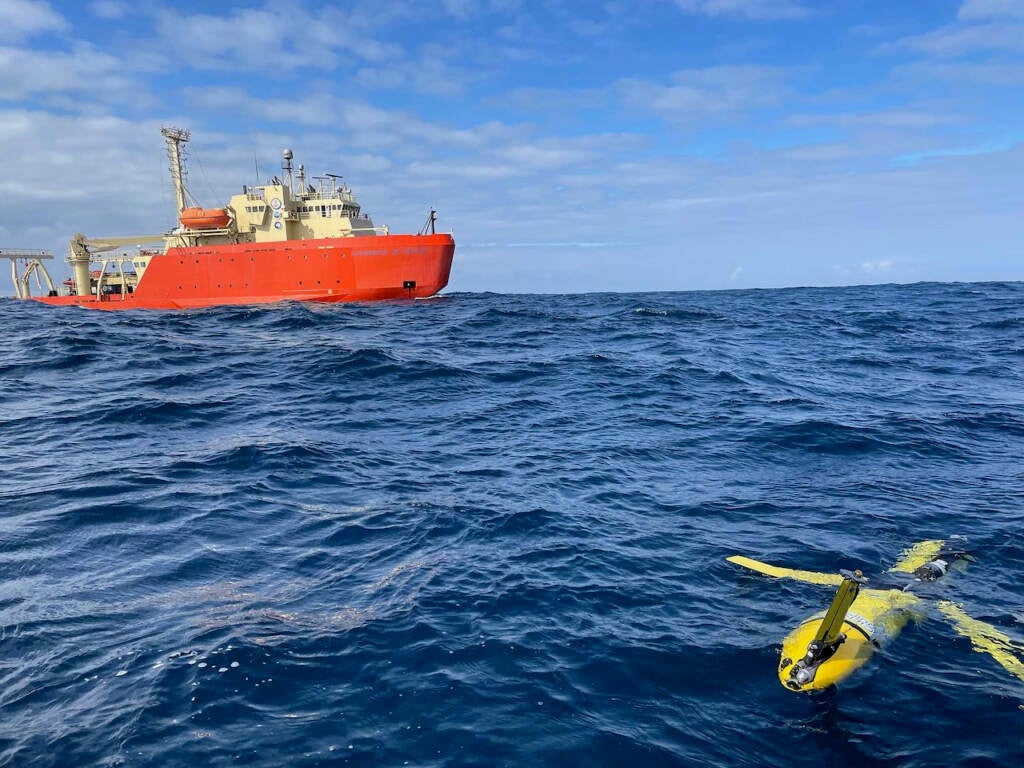
On Tuesday, the National Snow and Ice Data Center announced the amount of ice covering the Antarctic sea set a new record low.
Moffat said the findings are a reminder of the urgency to address climate change.
“Even in regions of the world like Antarctica that are so far away from the regions of the world where, say, emissions are being added to the atmosphere, the climate is still being impacted very severely,” the professor said.
What happens in Antarctica impacts the rest of the world. Sea level rise, which is a threat to Delaware, New Jersey, and other coastal regions, is partly caused by melting ice in Antarctica.
“Therefore, understanding what’s going to happen in the future here [in Delaware] where I live, depends on understanding how fast the Antarctic is melting today, and how it will melt in the future.”
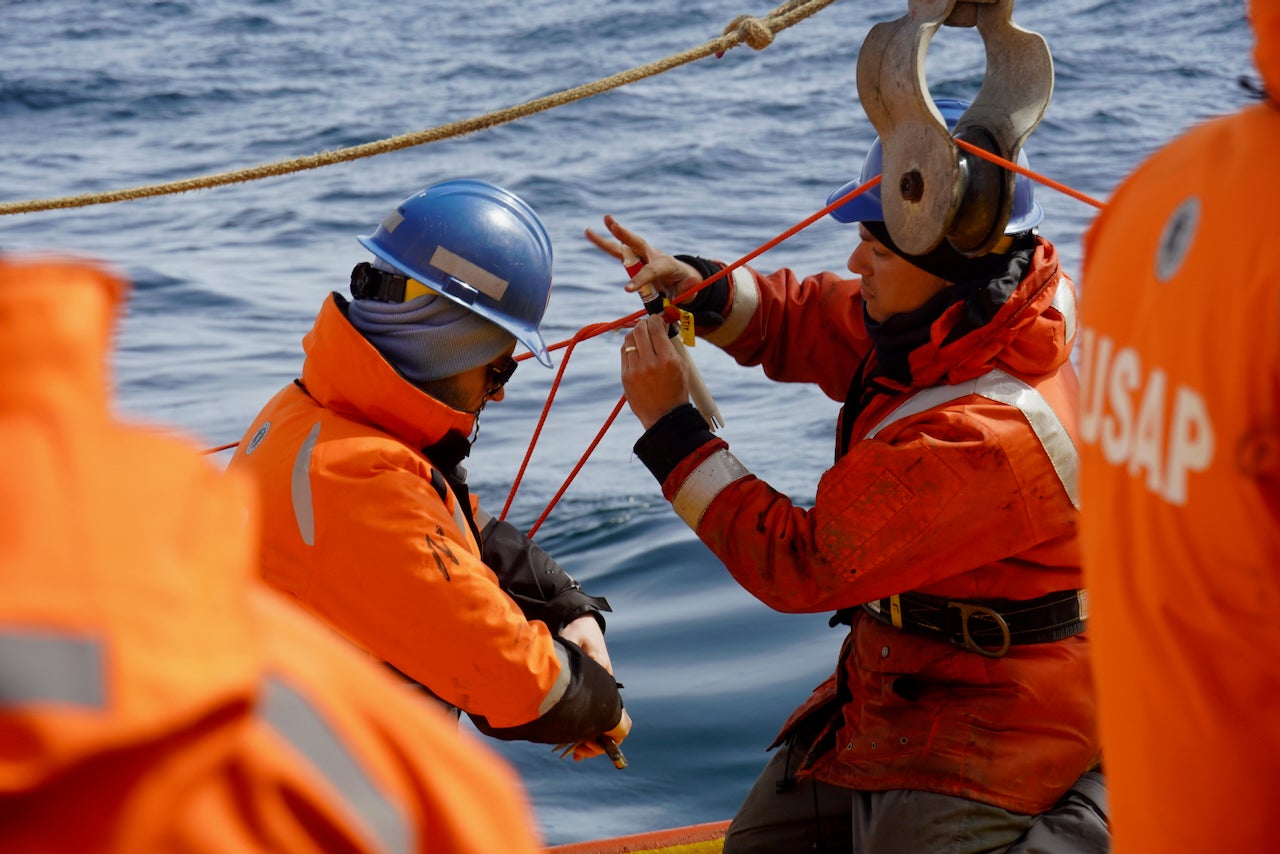
Studying the West Antarctic Peninsula, a remote, rapidly changing region, is a “natural laboratory” for what might happen in the rest of the world, Moffat said.
Moffat’s team wants to determine whether the conditions they observed can be linked to climate change or other processes.
WHYY is your source for fact-based, in-depth journalism and information. As a nonprofit organization, we rely on financial support from readers like you. Please give today.



